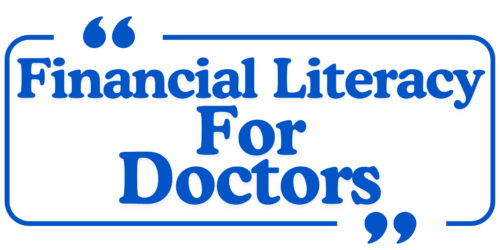Contracts and Compensation Education Curriculum for Doctors
Overview: This curriculum is designed to provide doctors with essential knowledge and skills related to understanding contracts and compensation structures in the medical field. Participants will learn how to analyze, negotiate, and optimize their contracts while understanding various compensation models that affect their overall financial health.
Module 1: Introduction to Contracts in Medicine
- Target Audience: All doctors
- Duration: 1 hour
Objectives:
- Understand the role of contracts in medical practice and the legal implications of agreements.
Topics Covered:
- Definition and importance of contracts in healthcare
- Key components of a valid contract (offer, acceptance, consideration)
- Types of contracts relevant to physicians (employment, partnership, service agreements)
Module 2: Employment Contracts for Physicians
- Target Audience: New and mid-career doctors
- Duration: 2 hours
Objectives:
- Learn to evaluate and negotiate employment contracts effectively.
Topics Covered:
- Common clauses in employment contracts:
- Compensation and benefits (salary, bonuses, incentives)
- Work hours, on-call requirements, and vacation time
- Non-compete and non-solicitation clauses
- Termination clauses and severance packages
- Understanding various forms of compensation (base salary vs. productivity-based)
- Evaluating benefits (malpractice insurance, retirement plans, continuing education stipends)
Activities:
- Group exercise: Analyze sample employment contracts and identify key clauses.
- Role-playing negotiation scenarios to practice communication skills.
Module 3: Compensation Models in Medicine
- Target Audience: All doctors
- Duration: 2 hours
Objectives:
- Understand different compensation models and their implications for income.
Topics Covered:
- Overview of compensation models:
- Salary vs. fee-for-service
- Productivity-based compensation (RVUs, bonuses)
- Capitation and other alternative payment models
- Pros and cons of each model
- Understanding how compensation affects work-life balance and job satisfaction
Activities:
- Case study discussions comparing different compensation models.
- Interactive Q&A session with compensation experts.
Module 4: Analyzing and Negotiating Contracts
- Target Audience: Mid-career and experienced doctors
- Duration: 2 hours
Objectives:
- Develop skills to analyze contracts critically and negotiate favorable terms.
Topics Covered:
- Steps in the contract review process:
- Initial assessment and understanding of terms
- Identifying critical clauses and potential risks
- Negotiation strategies and techniques
- Importance of legal counsel in contract negotiations
- Common red flags and pitfalls to watch out for in contracts
- Tips for successful negotiations
Activities:
- Workshop: Participants bring their contracts for group discussion and feedback.
- Role-playing negotiations with peers acting as employers or partners.
Module 5: Compensation Trends and Future Considerations
- Target Audience: All doctors
- Duration: 1.5 hours
Objectives:
- Stay informed about evolving compensation trends in the medical field.
Topics Covered:
- Current trends in physician compensation:
- Impact of value-based care on compensation
- Changes in reimbursement models (insurance and government policies)
- Emerging compensation structures (direct primary care, telemedicine)
- Understanding the implications of market forces on compensation
- Planning for future financial goals and retirement
Activities:
- Panel discussion with industry experts on future trends in healthcare compensation.
- Interactive audience Q&A.
Module 6: Ethical Considerations in Contracts and Compensation
- Target Audience: All doctors
- Duration: 1 hour
Objectives:
- Understand the ethical implications of contracts and compensation structures.
Topics Covered:
- Navigating conflicts of interest in contracts
- Ethical considerations in compensation models
- Ensuring patient-centered care while negotiating contracts
Activities:
- Group discussion on ethical dilemmas faced in contracts and compensation.
- Case studies illustrating ethical challenges in healthcare agreements.
Conclusion and Certification
Upon completion of the curriculum, participants will receive a certificate of completion, recognizing their enhanced understanding of contracts and compensation in the medical field. This education will empower doctors to make informed decisions, negotiate effectively, and optimize their financial outcomes in their professional practice.
This curriculum can be delivered through in-person workshops, online courses, or hybrid formats to accommodate the busy schedules of medical professionals while ensuring they gain valuable insights into contracts and compensation.
